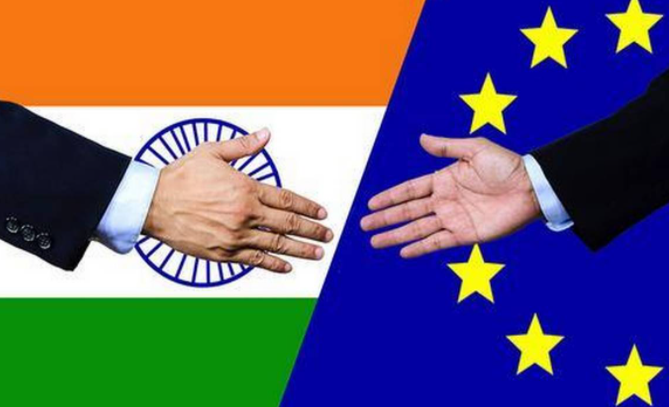NATO must extend a formal partnership offer to Delhi; India must shed its hesitation. Both have a common challenge
When the North Atlantic Treaty Organization (NATO) leaders meet later this year, they will debate the recommendations from a group of experts (which I co-chaired) that advocates, among other things, extending a formal offer of partnership to India. Such an idea has been discussed before but has always foundered on India’s aversion to entanglement in rival geopolitical blocs. It’s time to overcome this obstacle.
To buy our online courses: Click Here
In these circumstances, India’s longstanding strategy of careful equi-distancing, punctuated by tilts toward China and Russia, is not viable; inevitably, New Delhi will have to undertake more deliberate efforts to counter-balance the juggernaut of Chinese power. To this end, it has already begun to deepen bilateral defence ties with Japan, the United States (US), and other regional players threatened by China, including through Quad.
In the near-term, India would derive strategic-signalling value from even the appearance of drawing closer to the Western Alliance at a crucial, early phase of Beijing’s transition to a more aggressive posture. The mere fact of opening partnership talks would send the message that India’s leaders will redouble coalition-building efforts, more or less in direct proportion to Chinese aggression. The signal will hold all the more value precisely because it has heretofore bordered on geopolitical taboo.
Longer-term, India would derive military-strategic benefits from partnership with the world’s most powerful alliance. While NATO partnerships do not carry the Article 5 guarantee of collective defence against armed attack, they nevertheless come with regular defence dialogues, military-to-military planning, and joint exercises that improve readiness, interoperability and predictability. In the event of a conflict, India would benefit from having prior planning and arrangements in place for cooperating with NATO and its Mediterranean partners (including Israel, with which India has a close strategic relationship) to secure its western flank and the approaches to the Red Sea.
Partnering with NATO would not significantly constrain India’s broader geostrategic options. Egypt and Israel are both NATO partners who maintain defence relationships with Russia. Switzerland, Finland, Sweden, and Austria are all NATO partners with long-standing neutralist traditions. NATO’s partnerships are highly customized arrangements. In India’s case, the sheer size and importance of the country may warrant a new and special category of partnership — one that combines periodic high-level dialogue, technological cooperation and defence planning for maritime contingencies.
By contrast, the case for NATO partnership with India — a large maritime democracy with concerns and interests that tend to overlap with those of the US and many European allies — has only grown more compelling as China’s rise has accelerated.
In this emerging competition, India is a vital player in its own right and should be treated as such. But Indians should be under no illusions that a truly non-aligned path remains a viable option.
Strengthening ties with NATO now, while China is still in the early phase of a shift to a more assertive posture toward both South Asia and Europe, could pay dividends in dissuading aggression and ensuring that, should China continue on its current trajectory, India has as many friends as possible in the right places.




